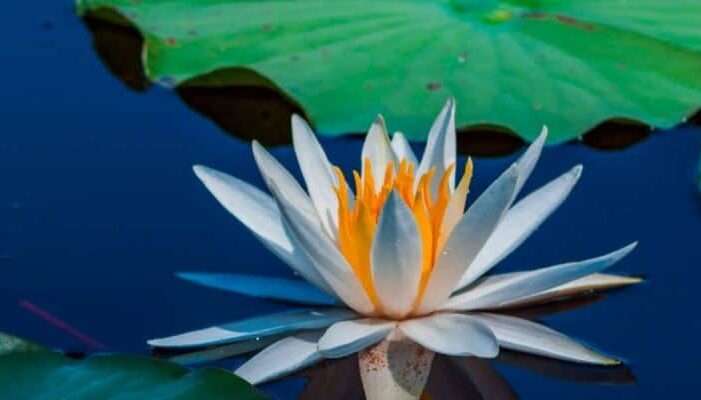POSTS:
Secular Buddhism

Lenorë Lambert’s The Buddha for Modern Minds: A non-religious guide to the Buddha and his teachings
Lenorë Lambert's new book, The Buddha for Modern Minds: A non-religious guide to the Buddha and his teachings, provides newcomers and experienced practitioners with answers to key questions such as: Does the dharma teach passivity? Is the dharma anti-passion? Do I need to find a teacher to learn the dharma? The book also offers a deep dive into the Four Great Tasks (orthodox Four Noble Truths).

Coming to terms with being human: a fourth mark of existence
Buddhists teachings point us towards three characteristics that are common across everything in sentient life: dukkha, anatta, and anicca. Linda Modaro posits a fourth mark of existence based on our need to survive and thrive.

Seth Zuihō Segall and Winton Higgins debate the meaning and value of secular Buddhism
Beginning with Seth Zuihō Segall's article, 'Why I am not a secular Buddhist,' Seth and Winton Higgins have engaged in a dialogue on SBN about the meaning and value of secular Buddhism. They have discussed the notion of secularity, religion and religious experience, the role of community, and other key issues.

The dialogue on secular Buddhism continues: Winton Higgins’s surrejoinder to Seth Zuihō Segall’s rejoinder
In his reply to Seth Zuihō Segall's rejoinder in the debate over secular Buddhism Winton Higgins explores the meaning of secularity, religion, and the everyday sublime. He argues that a secular faith is not opposed to religion but is characterized by a deep engagement, a wholehearted commitment, to living this, our one and only life, meaningfully.

Stephen Batchelor on a ‘Secular Perspective on the Eightfold Path’
In a dharma talk given to the Community Meditation Center (New York City, USA), Stephen Batchelor discussed a secular perspective on the Noble Eightfold Path.

An interview with Robert Wright on evolutionary psychology and a naturalistic approach to Buddhism
SBN interviewed Robert Wright, the author of why 'Buddhism is True,' on evolutionary psychology, his naturalistic approach to Buddhism, and his view of secular Buddhism.

The dialogue on secular Buddhism continues: Seth Zuihō Segall’s rejoinder to Winton Higgins
Seth Zuihō Segall continues the dialogue on secular Buddhism by offering a rejoinder to Winton Higgins' response to his article, 'Why I Am Not a Secular Buddhist.' Seth discusses the nature of the religious attitude, the role of community and traditions, and his non-dual perspective.

Winton Higgins responds to Seth Zuihō Segall’s ‘Why I am not a secular Buddhist’
Winton Higgins asserts that Seth Zuihō Segall mistakenly assumes that all secular Buddhists support a 'scientistic' form of secular Buddhism which is hostile to religion. In fact, many secular Buddhists advocate an 'interpretive' approach which integrates dharmic insights with modern perspectives to promote human flourishing in this life.

Why I am not a secular Buddhist
Seth Zuihō Segall considers his 'naturalized' and 'eudaimonic' approach to Buddhism 'close cousins' to secular Buddhism. Yet, he believes that the word 'secular' implies a set of connotations he does not wish to affirm.

Owen Flanagan on the core elements of a naturalistic Buddhism
Owen Flanagan presents the core elements of a naturalistic Buddhism in a recent essay. Following the traditional division of the Noble Eightfold Path into three sections – wisdom, ethics, and meditation - he lays out the ‘three strands’ of a Buddhism stripped of the metaphysical and supernatural elements of traditional Buddhism.

The simile of the raft: another interpretation
The point of the simile of the raft is to realize that holding one's own version of the dharma as the only valid one and considering the others wrong is a form of attachment that will not lead to anything good and that contradicts the practice itself. In the long run a closed and dogmatic attitude will reinforce harmful mental patterns.

The God of the Buddha
The historical Buddha, Gotama, is not properly characterized as either an atheist or agnostic. He does not deny or affirm, but chooses silence, a ’strategic‘ silence which affirms a precise idea: any discourse on the absolute is inadequate. It is not a question of arguing that this dimension is unthinkable or unrealizable. It is about rejecting any attempt by language to establish a definitive truth in one sense or another.

The Secular Buddhist Recovery Facebook Group
The Secular Buddhist Recovery Group on Facebook is a sangha of individuals who wish to learn, help and support each other in recovery from alcohol, drugs and other addictions using the practices and teachings of a nonsectarian approach to the Dharma. The group is for those who seek or are in recovery from addictions and for those with an interest in addiction recovery using a secular Dharma perspective.

Mortality and spiritual freedom
In an August 2020 talk to Bluegum Sangha in Sydney, Australia, Winton Higgins offered some thoughts on This life: secular faith and spiritual freedom, a recently published book by the Swedish philosopher, Martin Hägglund. He explored some of the ways the book might prompt us as dharma practitioners to refocus our practice by clarifying some of our underlying assumptions.

Stephen Batchelor on ‘Imagination, Creativity, and Magic’
In a dharma talk given to the Community Meditation Center (New York City, USA), Stephen Batchelor discussed the centrality of imagination and creativity to the dharmic path.
EXPLORE BY SECTION
SEARCH THE SITE
RECENT POSTS








